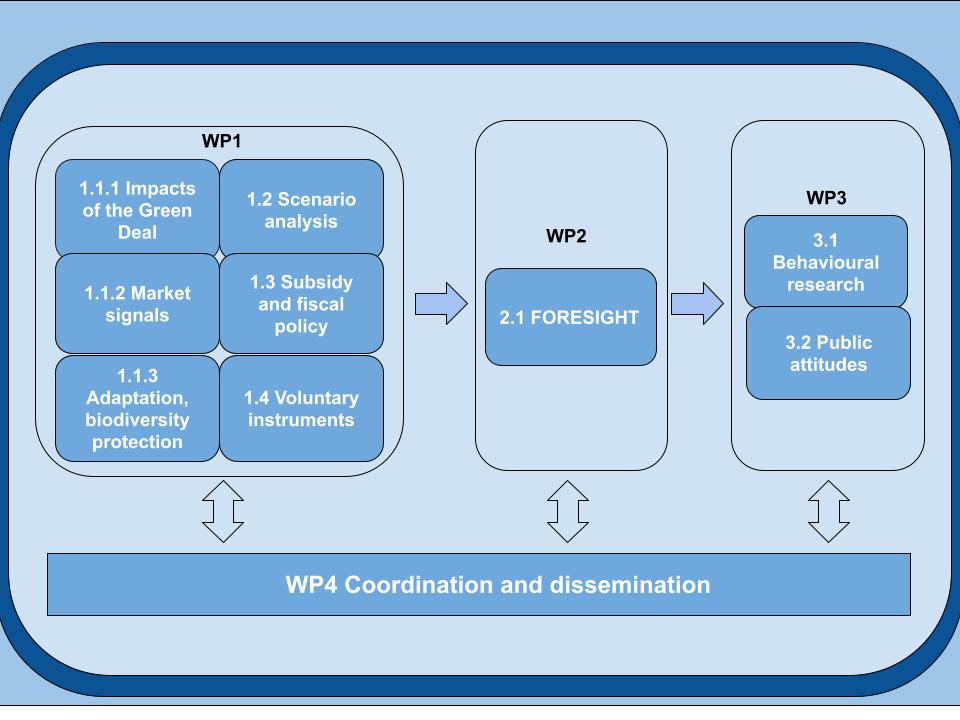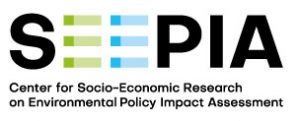About project
Project goals
1. Environmental and socioeconomic policy evaluation.
We will develop quantitative methods for ex-post evaluation and evaluate the effectiveness of environmental policies. We will ex ante evaluate the impacts of the GD, compile macro-econometric and CGE models and use optimization and simulation models, including regional input-output analysis, to verify the impacts of scenarios. We will establish a knowledge transfer hub to co-design policies as a shared analytical database with knowledge transfer among bodies of the strategic cycle chain.
Topics
– Impacts on the economy, energy and transport
– Evaluation of policies
– Health


2. Development and application of foresight methods
We will develop foresight methods to identify new trends in the form of development scenarios to map transformation processes in society, research and technologies, constituting assumptions for the identification of current and future socioeconomic and environmental challenges and their impacts.
Topics
– Scenarios and trends
– European Green Deal
3. Incorporating attitudes and behavior into the policy-making process
We will develop approaches drawing from experimental and behavioral economics, social psychology and sociology. We will design and conduct behavioral experiments, evaluating the effects and acceptability of policy measures and readiness for structural changes in the direction set in the GD. Periodical sociological surveys on public opinion related to environmental problems will improve understanding of how to communicate complex policies.
Topics
– Public opinion
– Behaviour and consumption

Project structure

Project outputs
As part of the SEEPIA project, a significant number of diverse outputs are planned, which interconnect individual work packages that function as independent autonomous units.
Outputs will include, for example, an analysis of the economic and social impacts of the policies and measures of the European Green Agreement and especially the “Fit for 55” package, including the impacts of the emissions trading system (EU ETS), revised EU directives on renewable energy sources, energy efficiency or energy taxation in the Czech Republic or the Carbon Border Offset Mechanism (CBAM), the analysis of environmentally harmful subsidies, the setting of payments in agriculture or the analysis of the functioning of fiscal, support and voluntary instruments in general.
As part of the project, we will introduce the achieved outputs to professionals and the general public. Our intention is to spread the outputs through external activities and PR, so that the results can be used as much as possible at the national and international level. The interest in participating in the project among high-quality researchers and experts is high, and the outputs of the project will find their application in policy-making at the ministries, within the EU, at the international level, and we will do our best to make it the same for the general public. We will prepare individual outputs so that they can be used for further research activities, projects and initiatives here and abroad.
You can find finished outputs in the section Results.

